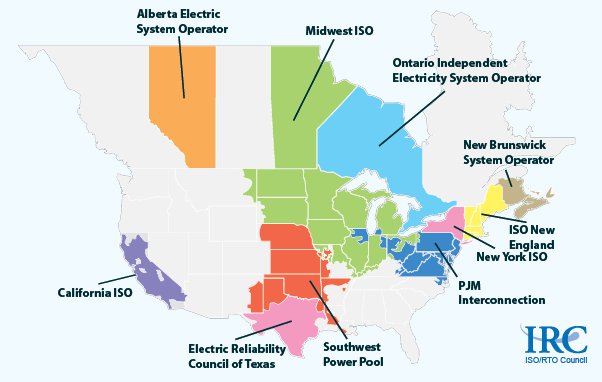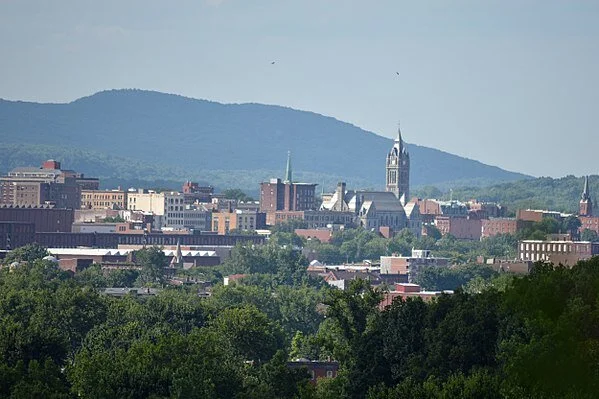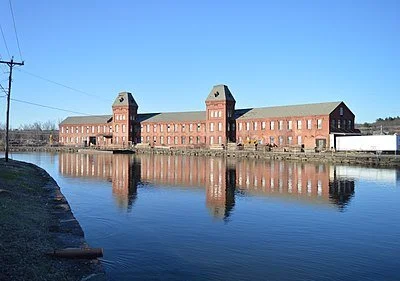
Llewellyn King: Electrification and the Great American reset
Independent (electric grid) system operators and regional transmission operators
WEST WARWICK, R.I.
It is underway. It has huge momentum, and it will change everything we do — work, leisure, health care, education, use of resources — and, as a bonus, how the world sees us.
It is the Great American Reset, where things will be irreversibly changed. It is a seminal reset that will shape the decades to come, just as the New Deal and World War II shoved the clock forward.
The reset is being driven in part by COVID-19, but in larger part by technology and the digitization of America. Technology is at the gates, no, through the gates, and it is beginning to upend the old in the way that the steam engine in its day began innovations that would change life completely.
Driving this overhaul of human endeavor will be the digitization of everything from the kitchen broom to the electric utilities and the delivery of their vital product. Knitting them together will be communications from 5G to exclusive private networks.
President Biden’s infrastructure proposals could speed and smooth the innovation revolution, facilitate the digital revolution, and make it fairer and more balanced. Biden’s plan will fix the legacy world of infrastructure: roads, bridges, canals, ports, airports, and railroads. It will beef up the movement of goods and services, supply chains, and their security, even as those goods and services are changing profoundly.
But if Biden’s plan fails, the Great American Reset will still happen. It will just be less fair and more uneven — as in not providing broadband quickly to all.
Technology has an imperative, and there is so much technology coming to market that the market will embrace it, nonetheless.
Think driverless cars, but also think telemedicine, carbon capture and utilization, aerial taxis, drone deliveries, and 3D-printed body parts. Add new materials like graphene and nano-manufacturing and an awesome future awaits.
We have seen just the tip of digitization and have been reminded of how pervasive it is by the current chip shortage, which is slowing automobile production lines and thousands of manufactures. But you might say, “You ain’t seen nothing yet.” The future belongs to chips and sensors: small soldiers in mighty armies.
Accompanying digitization is electrification. Our cars, trucks, trains, and even aircraft and ships are headed that way. Better storage is the one frontier that must be conquered before the army of change pours through the breach in a great reshaping of everything.
Central to the future — to the smart city, the smart railroad, the smart highway, and the smart airport — is the electric supply.
The whole reset future of digitization and sensor-facilitated mobility depends on electricity — and not just the availability of electricity going forward, but also the resilience of supply. It also needs to be carbon-free and have low environmental impact.
An overhaul of the electric industry’s infrastructure, increasing its resilience, is an imperative underpinning the reset.
The Texas blackouts were a brutal wake-up call. Job one is to look into hardening the entire electric supply system from informational technology to operational technology, from storm resistance to solar flare resistance (see Carrington Event), from catastrophic physical failure to failure induced by hostile players.
The electric grid needs survivability, but so do the data flows which will dominate the virtual utility of the future. It also needs a failsafe ability to isolate trouble in nanoseconds and, essentially, break itself into less vulnerable, defensive mini-grids.
Securing the grid is akin to national security. Indeed, it is national security.
Electricity is the one indispensable in the future: The future of the great reset.
Klaus Schwab, the genius behind the World Economic Forum, called this year from his virtual Davos conference for a global reset to tackle poverty and apply technology and business acumen to the human problems of the world. We are on the cusp of going it alone.
In the end, the route to social mobilization is jobs. The Great American Reset will throw these off in an unimaginable profusion, as did the arrival of the steam engine a little over 300 years ago.
On Twitter: @llewellynking2
Llewellyn King is executive producer and host of White House Chronicle, on PBS. He’s based in Rhode Island and Washington, D.C.
The New England electric grid is managed by ISO New England from Holyoke, Mass., whose skyline is seen here. Note the clock tower of City Hall and the Mount Tom Range in the background,
'Millions of dark, sooty bricks'
The Albion Paper Mill, designed by internationally renowned mill architect David H. Tower, c. 1869, an example of Second Empire industrial architecture in Holyoke.
High Street in downtown Holyoke, circa 1920
“Holyoke {Mass.} is pure New England mill town….First there is the {Connecticut} river, wide and full of rapids, swinging around a curve, and then the city itself, climbing the hills on the far bank. Holyoke is vast, dense, and somber….Smokestacks and church spires reach into the sky. There are bricks, millions and millions of dark, sooty bricks, and a wealth of detail: granite windowsills, brass weathervanes, copper-sheathed cupolas, bell towers, ornamental ironwork, heavy wooden doors, cobblestone alleys, stone steps worn smooth by millworkers’ feet.’’
— Ben Bachman in Upstream: A Voyage on the Connecticut River (1985)
Statehood for Puerto Rico
Adapted from Robert Whitcomb's "Digital Diary,'' in GoLocal24.com:
About 80 percent of Holyoke, Mass., public school students are of Puerto Rican background. Now district officials are preparing for a flood of new students as a result of the ravages of hurricanes Irma and, especially, Maria, in that U.S. commonwealth. Other urban school districts in southern New England, especially in Massachusetts and Connecticut, that have lots of Puerto Ricans, are making similar arrangements.
What will immediately help the ravaged island is suspension of the Jones Act, which requires goods shipped between American ports to only be carried on ships built primarily in the United States and with U.S. citizens as their owners and crews. Happily, President Trump last week suspended the law. But it may be time to get rid of it for good.
The idea behind this 1920 law was to protect the American shipping business.
But the Jones Act dramatically raises the prices of goods brought into the island. Puerto Ricans must absorb extra shipping costs of items that could be shipped directly and much more cheaply from a nearby island, such as Hispaniola or Jamaica. The Jones Act forces shippers to route through an American port, in Puerto Rico’s case most likely from Jacksonville and Miami.
Puerto Rico desperately needs supplies to start to recover from these terrible storms.
For the longer term, Daniel W. Drezner, of the Fletcher School of Law and Diplomacy at Tufts wrote:
“This is not just about recovering from Hurricane Maria. It is also about Puerto Rico’s long-term future. If the Jones Act were suspended, consumer prices would drop by 15 percent to 20 percent and energy costs would plummet. A post-Jones Puerto Rico could modernize its infrastructure and develop its own island-based shipping industry. Indeed, the island could become a shipping hub between South America, the Caribbean and the rest of the world. This industry would generate thousands of jobs and opportunities for skilled laborers and small businesses. On an island with official unemployment over 10 percent (but actually closer to 25 percent), this would energize their entire workforce.’’
Meanwhile, it continues to be perverse that residents of Puerto Rico and the nearby U.S. Virgin Islands, while American citizens who can serve in our armed forces, can’t vote in U.S. elections. But that, of course, goes back to the fact that Puerto Rico is not a state. Out of fairness and for national-security concerns, the island, perhaps combining with the U.S. Virgin Islands, should become one.
If it had been a state, it probably wouldn’t have suffered thelethal delays in receiving aid after the hurricanes. Statehood would mean that Puerto Ricans would have to pay federal taxes but that the respect and assistance that they’d get as full parts of the United States would make that well worth it.




